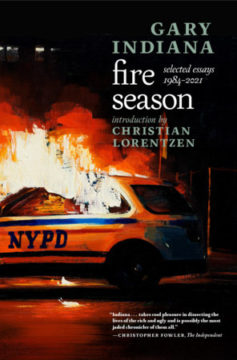 Ryan Ruby in The New Left Review’s Sidecar:
Ryan Ruby in The New Left Review’s Sidecar:
The sovereignty of the ‘average American’ is outbid by economic elites as a matter of course, not excluding those supposedly divisive issues (e.g., abortion, gun control, single-payer healthcare) on which there is in fact bipartisan consensus in the electorate, but that does not mean he has become depoliticized as a result. On the contrary, he is more politically engaged than ever before – only his political activities consist in impotently watching cable news, posting about it on social media, arguing with family and friends during the holidays, decking out his lawn and bookshelf with totemic merch and PayPaling donations to whatever politician or cause has most recently shoved its cup into his diminished span of attention. Yes, he sometimes goes to rallies, protests, city council meetings, or even the ballot box, but these activities, whatever he may believe, have become ends in themselves. ‘Politics is downstream from culture’, one of the more astute ghouls recently uncorked in America liked to say, and it is true that the country’s myriad cultural pathologies give its politics their particularly rancid flavour. But the real takeaway from the Princeton study is that, in the daily experience of the average American, politics is culture, culture is politics, and – with one class of exceptions – never the twain shall meet.
Best known for his tenure as the sharp-tongued, hard-to-impress art critic at the Village Voice during the last gasp of the counterculture, Gary Indiana’s insight into this state of affairs is that insofar as the US has become a ‘televised democracy’, it may, like any other aesthetic phenomenon, be reviewed.
More here.
